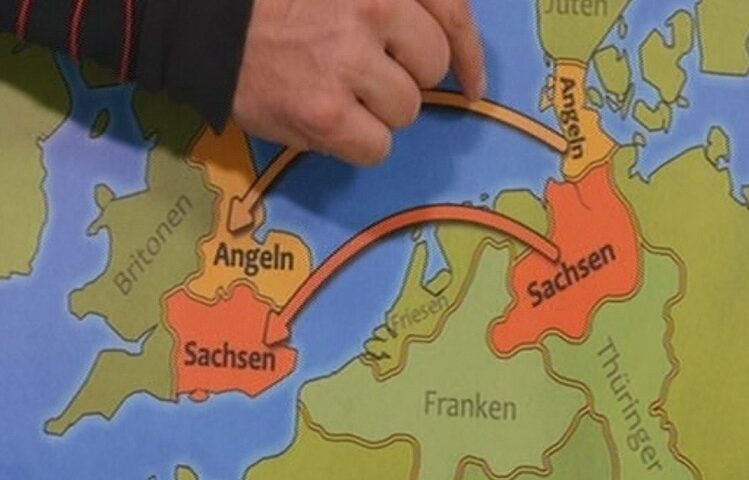
Deutschsprachige Studienangebote weltweit
19. Juli 2023
100 Jahre Hörspiele in Deutschland
4. Oktober 2023London (IMH) – When British or Americans learn German, they usually quickly realize that their native English language is related to German. But where does this relationship come from?
In the fifth century AD, the Germanic tribes of Angles and Saxons migrated from what is now northern Germany to the British Isle to a large extent. Even today there is the region of Angeln in Schleswig-Holstein. The reason for the emigration was simple: Some Britons, who had mixed with Romans and who were without protection from warlike Celtic Britons after the withdrawal of the Roman army, asked the Angles and Saxons to come to Britain as protection troops. The Germanic mercenaries gladly accepted the invitation because there were various violent conflicts in their homeland and their main livelihood, agriculture, was threatened by climatic changes.
They soon settled permanently on the British Isle and intermarried, giving rise to the term Anglo-Saxons. The Celts were pushed to the outer parts of the country – to Wales, Scotland and Cornwall. The Angles and Saxons gradually divided the captured land into small kingdoms, which later merged into one dominion. They succeeded in less than 300 years in doing what the Romans before them had failed to do: A language change from Celtic to Anglo-Saxon took place. Another word for Anglo-Saxon is „Ænglisc“, today „English“. This is how the country got the name England.
Even though the Old English language changed again and again in the course of time and was also influenced by the Normans or Frenchified Vikings, well over 5,000 words from Anglo-Saxon can still be found in modern English. These words from the fields of household, body and nature show astonishing similarity with today’s Low German. Examples are knife (English: knife, Low German: kniv), foot (English and Low German: foot), water (English and Low German: water) or sunshine (English: sunshine, Low German: Sünnschien), but also numbers (ten; English: ten, Low German: tein) or pronouns (er; English and Low German: he). Even the German plural on -en was retained in some words, as in ox, oxen (Ochse, Ochsen), child, children (Kind, Kinder) or man, men (Mann, Männer). In the English weekday names can also be seen that still today the Germanic origins are not to be omitted from the language. Thus Tuesday comes from the Germanic god Tiu (Tyr), Wednesday from Wotan and Thursday from Donar (Thor), the god of thunder.
If you are interested in Old English or Anglo-Saxon, you can still experience it in bestsellers like „Lord of the Rings“ by the German-born author J. R. R. Tolkien. Tolkien, a professor of Anglo-Saxon, has the Rohan people speak a fifth-century Anglo-Saxon dialect in the novel.
Source: News Agency of Internationale Medienhilfe (IMH), Author: Talea de Freese
